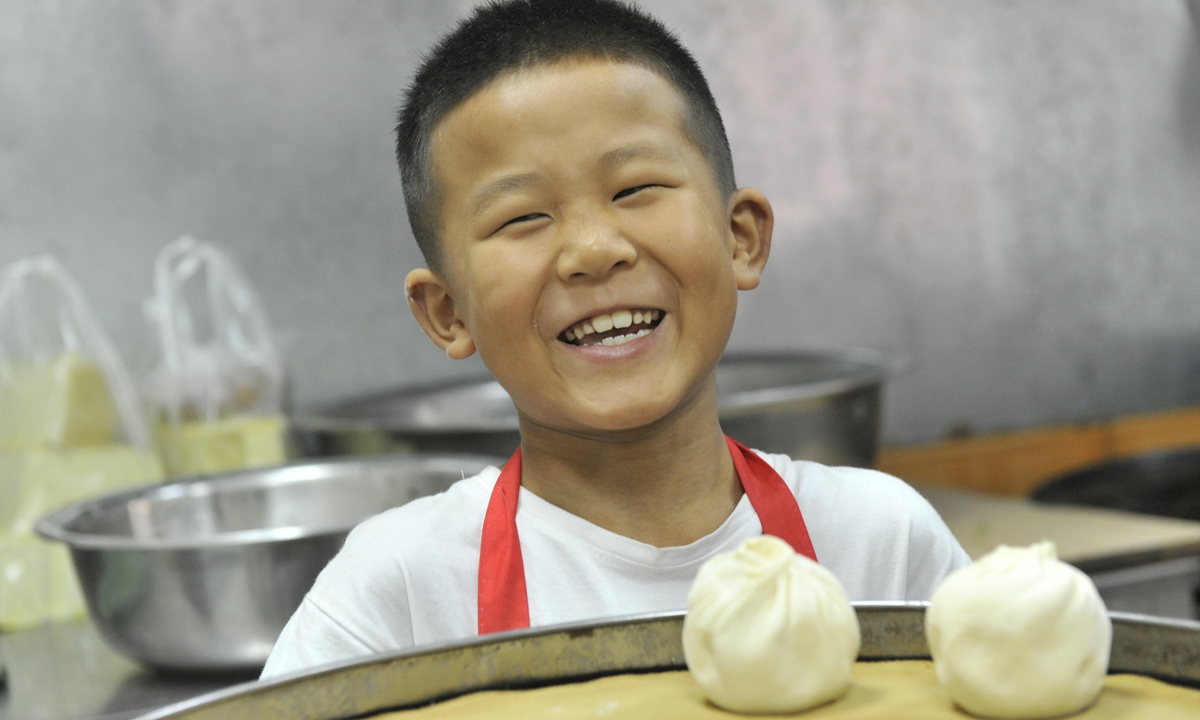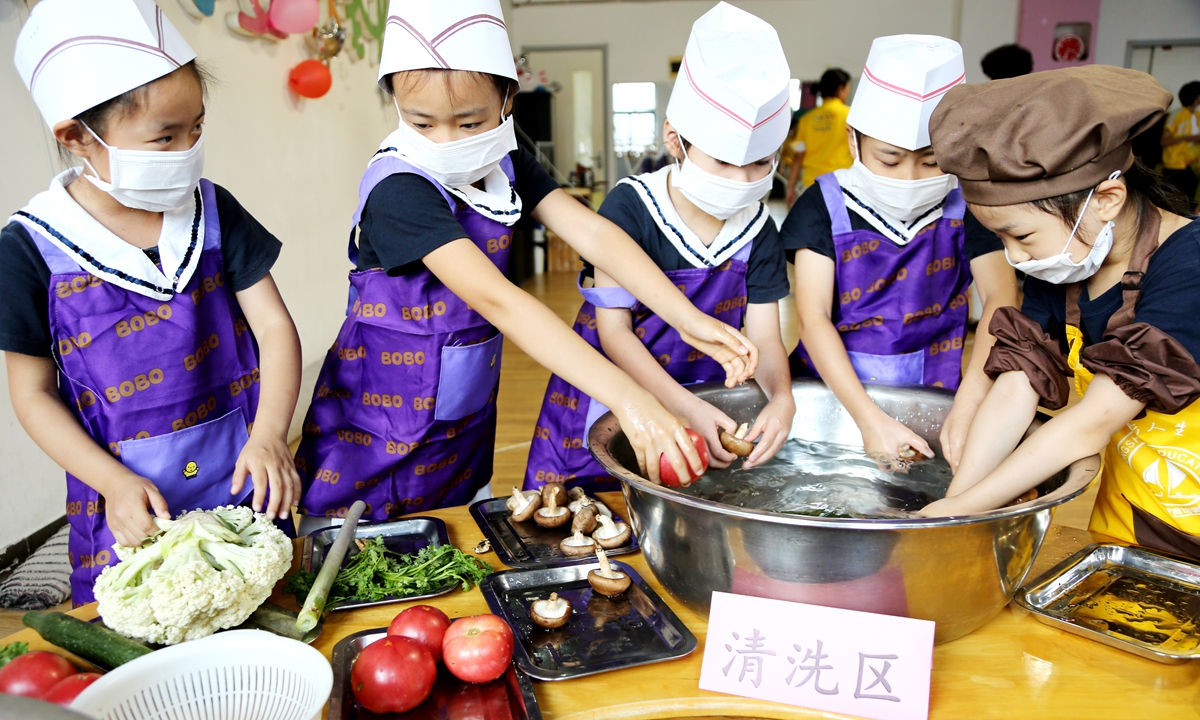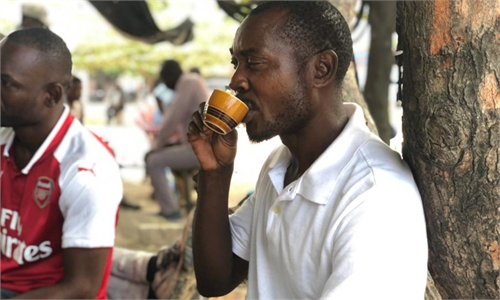ARTS / CULTURE & LEISURE
‘Chef course’ for school kids stokes spirited discussions

A seven-year-old boy from Northwest China's Shaanxi Province learns to make Baozi, a type of yeast-leavened stuffed bun in various Chinese cuisines, on August 22, 2019.Photo: VCG

Kids from a kindergarten in East China's Jiangsu Province wash vegetables to prepare for a cooking class on August 15, 2019.Photo: VCG
Earlier this week, social media posts about a cooking course for school kids, as part of a revamped life skills program to be rolled out nationwide this September, went viral on the internet.
It quickly became the top trending topic on China's Twitter-like Weibo, sparking heated discussions among netizens on the upcoming school program over the esuing days.
Fresh cooking course
The content of the social media posts is based on a new national curriculum standard for compulsory education rolled out by China's Ministry of Education (MOE), which outlines different cooking and nutritional courses for students in different grades.
It is recommended that first and second graders should learn how to peel fruits and brew tea, and acquire a basic knowledge of nutrition as well as the ability to take part in basic cooking at home.
The bar has been set higher for students in grades five and six, who are expected to acquire basic cooking skills such as frying and stewing, and be able to prepare a nutritious meal for their own families.
Apart from essential skills such as cooking and housekeeping, the program is also designed to enrich their knowledge and skillset in production work as well as in services.
"Through the courses and experience, students will develop respect for labor, the ability to make innovations and apply knowledge and skills in real life, and a sense of social responsibility," the MOE said.
Heated discussion
Many netizens hailed the life skills program and expressed their happiness at the changing pattern in education.
"This should have been done earlier. Children nowadays lack adequate physical activities and can barely distinguish wheat from rice crops. Their proficiency in life skills is far from satisfactory," commented a user on Douyin, the Chinese version of TikTok. So far the comment section has garnered 24,000 likes and received nearly 500 replies.
"Life is about learning. Children's wisdom and character are formed and shaped as they confront successive life challenges," a Weibo user commented.
Some netizens, however, expressed their concern that as a non-core part of the curriculum, the program cannot be fully implemented in schools, while others are worried that the program will merely place extra burden on parents.
"Schools should take the lead in teaching life skills, while families should play a supporting role. Schools, families, and the society should work together to promote education," said Gu Jianjun, a MOE official.
Parents should encourage their children to actively engage themselves, and cooperate with schools to guide their children in practicing life skills, Gu added.
"This is what schooling is supposed to be like," read another comment by a netizen and has raked in some 32,000 likes.



